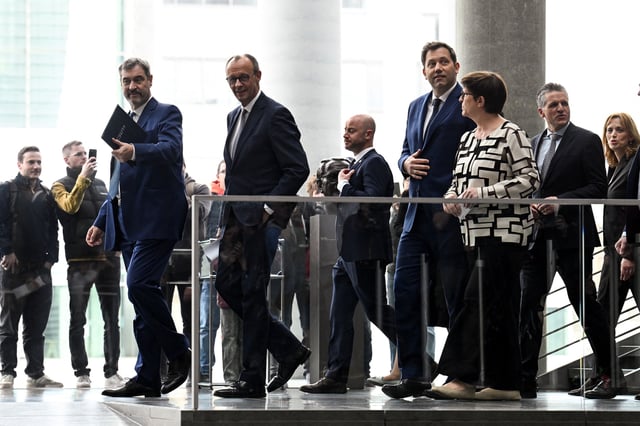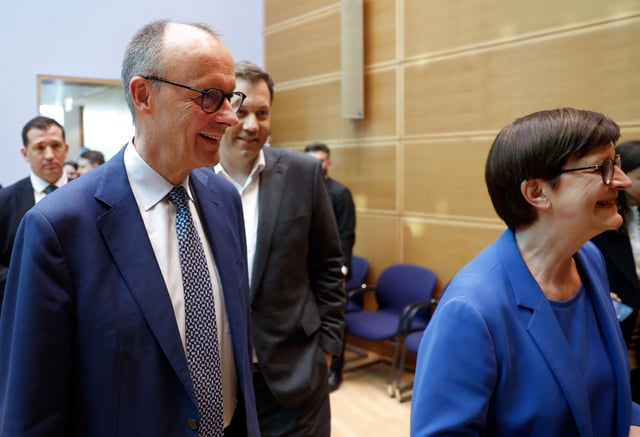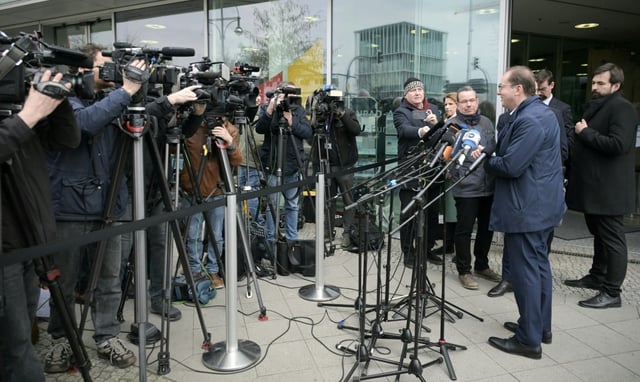Overview
- Germany's centrist parties, the CDU and SPD, have reached a coalition agreement following weeks of negotiations after the February federal election.
- The deal paves the way for Friedrich Merz, leader of the CDU, to become Germany's next chancellor within weeks.
- Key elements of the coalition pact include increased defense spending and major infrastructure investments, enabled by lifting borrowing restrictions.
- Negotiations were marked by disputes over tax reforms and migration policies, reflecting internal party tensions and external pressures from the far-right AfD’s electoral gains.
- The coalition was formed under significant pressure to address U.S. tariffs impacting Germany's export-driven economy and security concerns related to Russia's influence in Europe.



